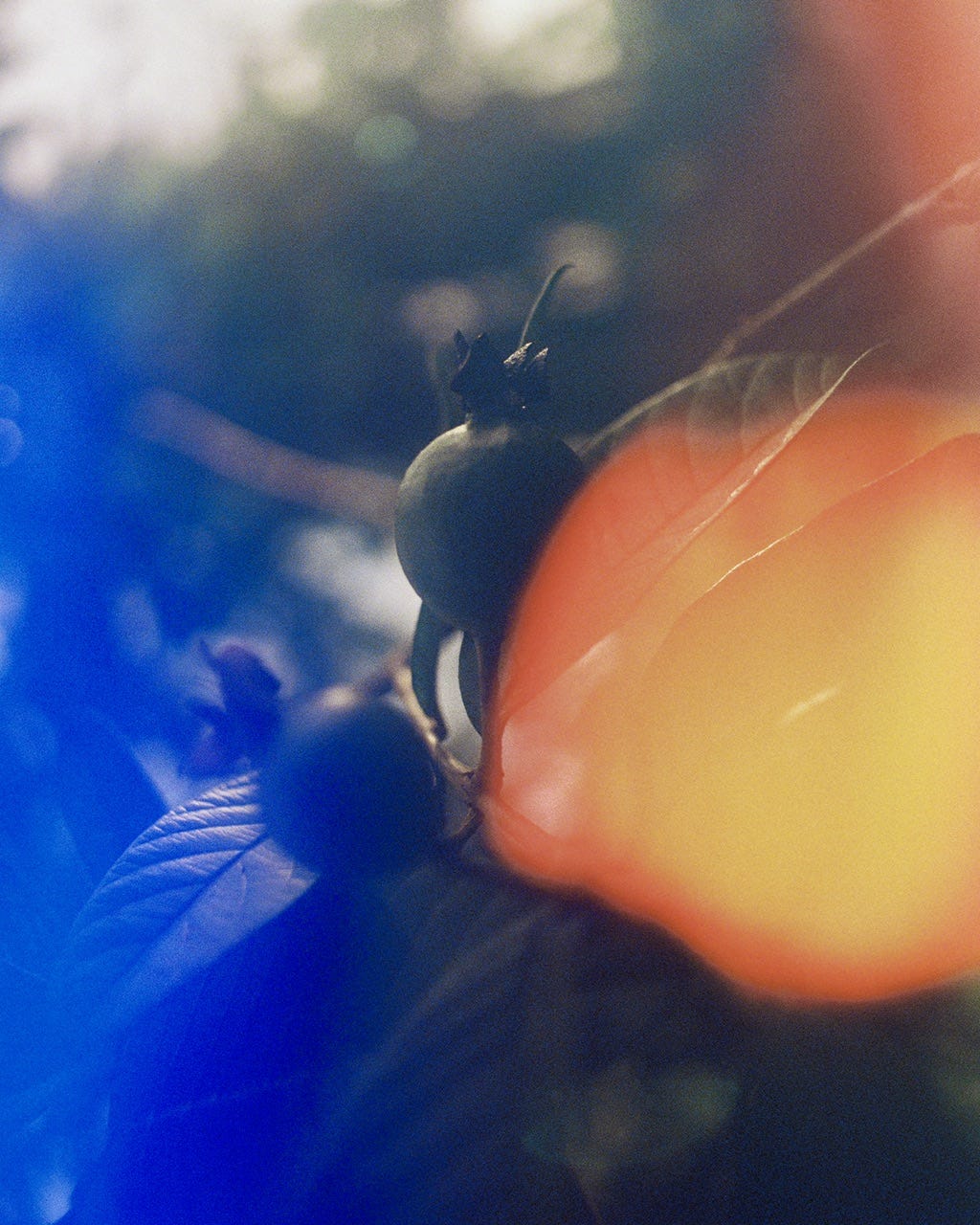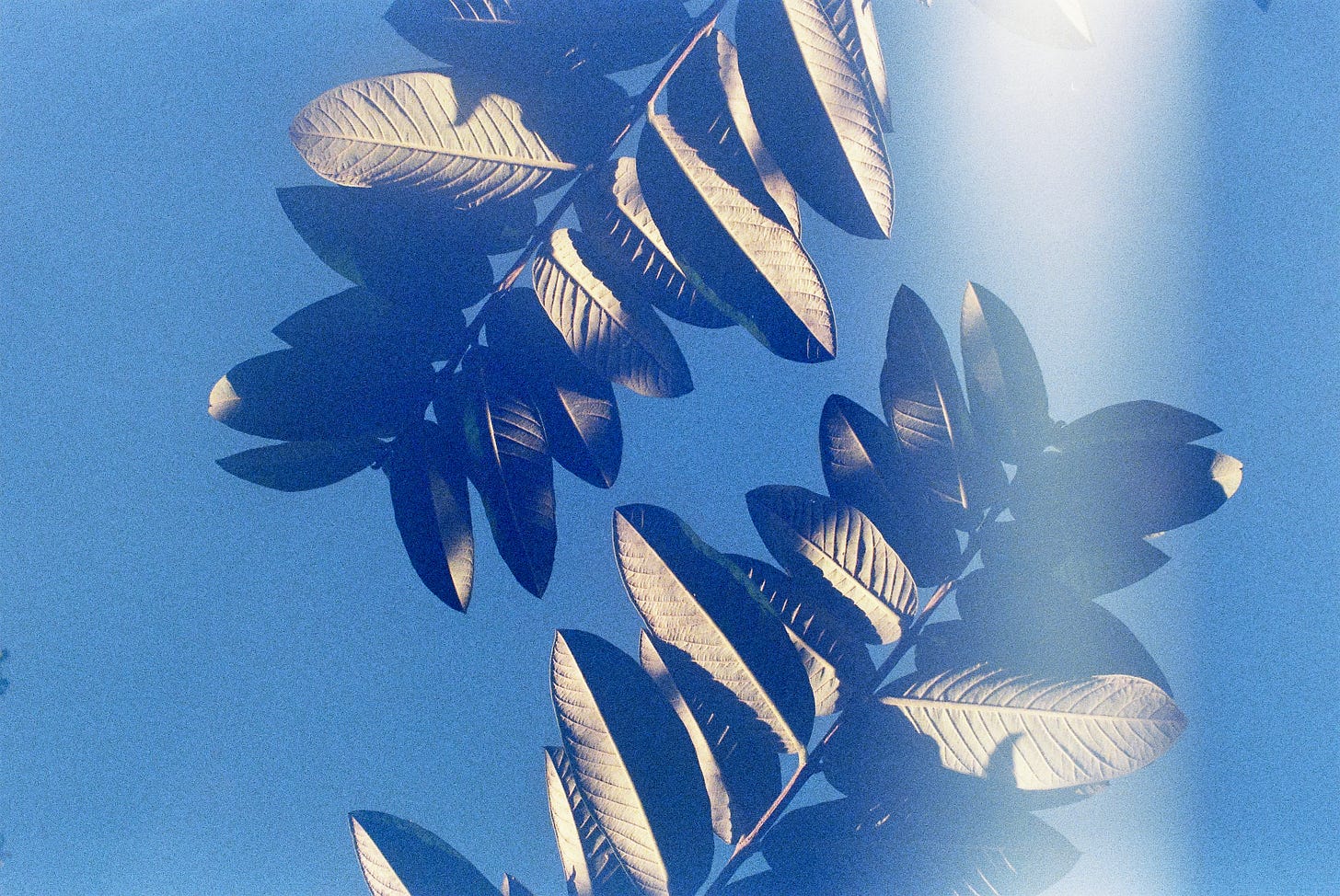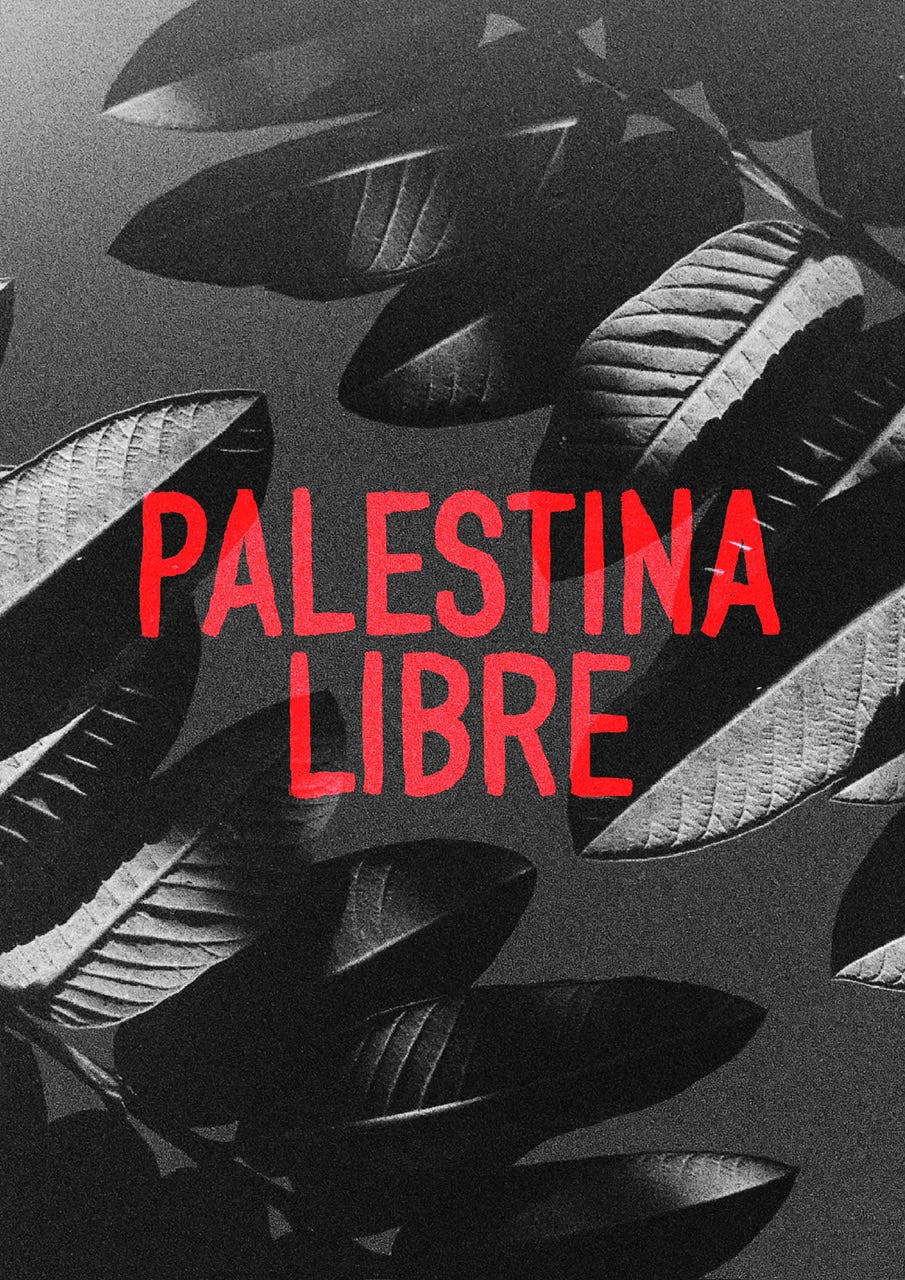
Why guava? They can grow in the least fertile soils, thriving in muddy flood zones where only the most toxic weeds survive, producing fruit from nothing.
Here in Puerto Rico, guava is the most popular flavor of many of our traditional pastries, sweets, and drinks. Yet few farms grow them anymore, the industry having dried up drained by a collection of colonial taxes and laws that make it harder for Puerto Rico to grow food.
“I had my last guava the day we left Puerto Rico. It was large and juicy, almost red in the center, and so fragrant that I didn't want to eat it because I would lose the smell. All the way to the airport I scratched at it with my teeth, making little dents in the skin, chewing small pieces with my front teeth, so that I could feel the texture against my tongue, the tiny pink pellets of sweet.
Today, I stand before a stack of dark green guavas, each perfectly round and hard, each $1.59. The one in my hand is tempting. It smells faintly of late summer afternoons and hop-scotch under the mango tree. But this is autumn in New York, and I'm no longer a child.
The guava joins its sisters under the harsh fluorescent lights of the exotic fruit display. I push my cart away, toward the apples and pears of my adulthood, their nearly seedless ripeness predictable and bittersweet.”
An excerpt from When I Was Puerto Rican by Esmeralda Santiago
There are places where guava is revered as vital to a community’s livelihood, regarded as a symbol of luck and fertility. Others where guava is considered invasive and problematic, out of balance and threatening to take over ecosystems. It’s all about context.


In Hawai’i, Brazilian strawberry guava has grown so invasively that it has wiped out forests and it is in the process of taking over half the area of the Big Island. Conservationists took the unusual step of bringing in a foreign insect to infest the strawberry guava to cut back the population. Meanwhile in Australia, people are desperately calling for more protections for guava as a species is on the verge of extinction due to a fungus that recently arrived; it’s killed a quarter of the species and left the rest of the plants unable to produce new fruit.
“The endangered state of native guava in Australia could not be more different from the excessive proliferation of strawberry guava in Hawai’i—yet the context in they are understood is the same. Nativeness is good, invasiveness is evil. It is the role of scholarship to complicate and add nuance to such binary oppositions. In recent decades, scholars have highlighted the drawbacks of words like “invasive” and “native” pointing out their xenophobic histories, sometimes racist undertones, ecological pitfalls, and hypocrisy when faced with the greatest invaders of all: humans.”1
In this context we are careful not to conflate “native” with indigenous.

In the context of Palestine, the guava is a newcomer, arriving 200 years ago and sustaining the population. A fruit so important that it has been retained and cultivated inside the open air prison that is Gaza. It is the context in which new arrivals interact with original inhabitants that determines “invasiveness”. Alternatively, the zionist settler colonial project was codified just 75 years ago and has decimated the original inhabitants of all faiths and destroyed landscapes where the international community has allowed it to thrive.
Across Palestine, nearly 300,000 guava trees are planted, against the odds of increasing violence from encroaching settler farmers, eviction and loss of land because of the Separation (Apartheid) Wall, discriminatory trade agreements and water use policies, and the complete leveling and ongoing ethnic cleansing of the Gaza Strip. In Gaza alone, 2 square kilometers of land are—were—used for growing guavas.
we will return
that is not a threat
not a wish
a hope
or a dream
but a promise
Remi Kanazi, “Nakba”
“As Palestinians have been tweeting and otherwise telling the world, every single city in Palestine was once Sheikh Jarrah, and Silwan, and Lifta, and and and. As a Palestinian living in the United States, I witness my homeland’s cyclic apocalypse, as newer victims of Israeli ethnic cleansing replace older ones in the hashtags; as news met with Western apathy and zionist suppression dissolves into silence. Palestinians – having no choice but that which the West fetishizes as “bravery” – rebuild, survive in ways the West couldn’t begin to imagine, and above all, continue resisting. Every year, this organized resistance peaks on or around May 15 – the day we mourn the ethnic cleansing of Palestine, from the Nakba of 1948 to the Nakba of present day. And, on nearly every Nakba day of my adult life, I have witnessed the same pattern of Israeli aggression towards Palestinians, namely Gazans; Israeli aggression births Palestinian resistance births an excuse for further Israeli aggression.
The cycle – already unsustainable given the power imbalance between a Western, imperialist-funded, nuclear state and an Indigenous dispossessed people – intensifies with the years, pushing Palestinians into an even more desperate, catastrophic state of being. Israel knows the West will not hold them accountable, and furthermore, knows that its very ideology, its settler apparatus’ survival, depends upon its ability to force Palestinians into this unsustainable cycle of violence.
As much as this cycle is a problem of “diplomacy,” and Western failures therein, it is also a problem of (colonial imaginations of) language itself. Within this cycle, Palestinians witness repeating patterns of both-sides-isms and revisionist erasures of our struggle’s ongoing memory emerging from the American media. In their syntactical patterns and use of passive voice, in every statement divorced from the transparent and well-documented reality of Israeli ethnic cleansing, in every failure to contextualize the ongoing history of Palestinian resistance, the US media contorts the English language into a supremacist enactor of the colonial project. Many Palestinians, including myself, have written against this irresponsibility of language time and time again. We say so, often, but, nowadays, it feels as if we are shouting into the void.”
Language is merely the placeholder
for what the LAND has always known
Zaina Alsous, “The Workers Love Palestine”
The above quote and surrounding poems are excerpted from Teaching Poetry in the Palestinian Apocalypse by George Abraham.2
In solidarity with peoples across colonized lands. Free Gaza. Free Palestine.


https://daily.jstor.org/plant-of-the-month-guava/



